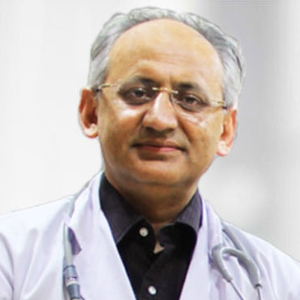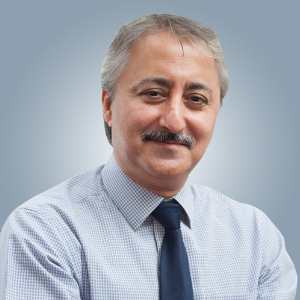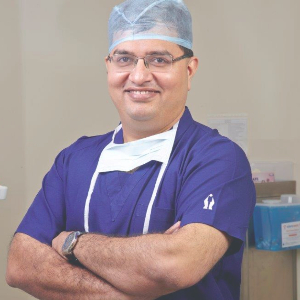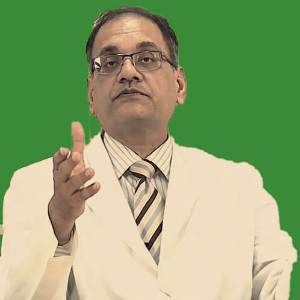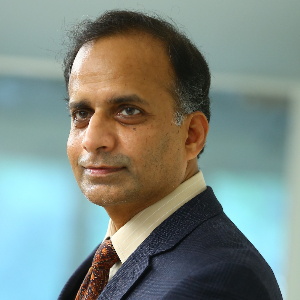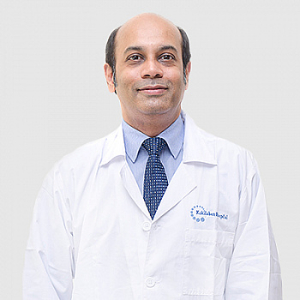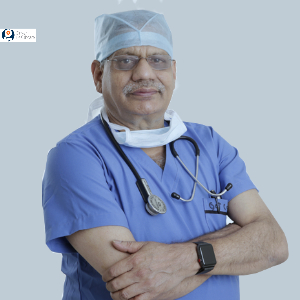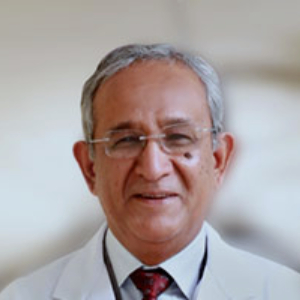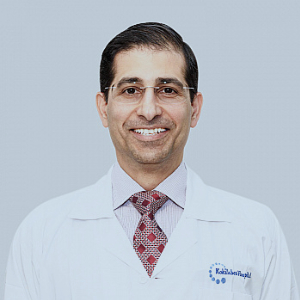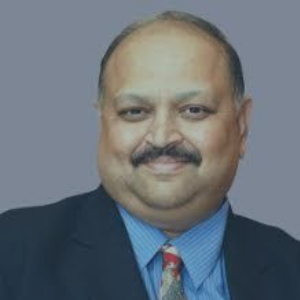Best Doctors in India for Avascular Necrosis Treatment
- Orthopedic Surgeon, Gurugram, India
- Over 25 years’ experience
Profile Highlights:
- Dr. Ravi Sauhta is a renowned Orthopedic Surgeon in India with 25+ years of experience in Joint Replacement and Reconstruction surgeries.
- He was the first surgeon in India to use minimally invasive AO techniques for trauma and also introduced reconstructive pelvic acetabular surgery and reconstructive bone tumor surgery in 1995.
- Pediatric Orthopedic Surgeon, Gurugram, India
- Over 24 years’ experience
Profile Highlights:
- Dr. Sanjay Sarup is a leading Orthopedic Surgeon with over 24 years of experience during which he has been associated with the best hospitals in the country.
- He performs a number of orthopedic procedures that includes surgery for correcting Scoliosis and Kyphosis, Club foot, dislocated hips, and hip deformity since birth among several other procedures.
- Dr. Sarup received his training in orthopedic surgery from leading hospitals in India and UK and holds a Fellowship of the Royal Hospital for Sick Children, Glasgow in Pediatric Orthopedics.
- Pediatric Orthopedic Surgeon, Gurugram, India
- Over 20 years’ experience
Profile Highlights:
- Dr. Manoj Padman is a renowned Pediatric Orthopedic surgeon in India specializing in the management and treatment of diseases and disorders of the musculoskeletal system in young children.
- Dr. Manoj Padman is considered one of the best surgeons in India for the correction of deformities and congenital defects in children. His primary interest includes birth anomalies, hip pathologies, post-infective and post-traumatic sequelae, and limb reconstruction surgeries.
- Orthopedic Surgeon & Spine Surgeon, Gurugram, India
- Over 25 years’ experience
Profile Highlights:
- Dr. Vineesh Mathur is an accomplished and renowned Orthopedic Surgeon in India specializing in Spine Surgery.
- He holds an extensive experience of 25+ years in the field of orthopedics and spinal surgery and has performed over 6000 independent surgeries till date.
- Dr. Vineesh Mathur is highly trained in all kinds of spinal procedures and received training in the procedures from distinguished institutes in India, Spain, Turkey, USA, South Korea, and Denmark
- Orthopedic surgeon, Chennai, India
- Over 35 years’ experience
Profile Highlights:
- Dr. A B Govindaraj is a leading Orthopedic surgeon who holds an extensive experience of more than 3 decades in the field and performs over 300 joint replacement surgeries annually.
- He excels in unilateral and bilateral total knee replacement, total hip replacement, and shoulder replacement surgeries.
- Pediatric Orthopedic Surgeon, Mumbai, India
- Over 15 years’ experience
Profile Highlights:
- Dr. Alaric Aroojis is a renowned Pediatric Orthopedic Surgeon in Mumbai and his expertise and primary area of specialization lie in deformity correction, cerebral palsy, and congenital anomalies. He is also an expert in performing complex pelvic osteotomy for congenital hip dislocation in young patients.
- He holds an extensive experience of more than 15 years in Pediatric Orthopedics and is highly skilled at using minimally invasive procedures for difficult limb deformity corrections.
- Orthopedic Surgeon, Hyderabad, India
- Over 30 years’ experience
Profile Highlights:
- Dr. B N Prasad is a well-known Orthopedic Surgeon with over 3 decades of experience.
- Dr. B N Prasad is among the few surgeons in the country to specialize in both adult and pediatric orthopedics and has taken up numerous cases and treated patients with excellent outcomes.
- He provides diagnostic as well as surgical treatment for various types of orthopedic disorders such as arthritis and osteoporosis.
- Orthopedic Surgeon, Gurugram, India
- Over 40 years’ experience
Profile Highlights:
- Dr. B K Singh is one of the best Orthopedic Surgeons in India with experience encompassing over 4 decades.
- He holds the credit for over 5000 Arthroplasty procedures and is one of the few surgeons in India with expertise in Robotic Knee and Hip Replacement Surgeries.
- Dr. B K Singh received his training in Joint Replacement Surgery and Robotic Knee and Hip replacement procedures from India, UK, and Japan.
- Orthopedic Surgeon, Mumbai, India
- Over 22 years’ experience
Profile Highlights:
- Dr. Dinshaw Pardiwala is an Orthopedic Surgeon par excellence specializing in shoulder replacement and sports injuries surgeries.
- With several firsts to his name, he performed the first Reverse Shoulder Replacement surgery, the first Navigation guided ACL Repair and the first Autologous Chondrocyte Stem Cell Transplant in India.
- Dr. Dinshaw Pardiwala introduced the Osteochondral Allograft Transfer and Transplant in India.
- Orthopedic Surgeon & Spine Surgeon, Mumbai, India
- Over 20 years’ experience
Profile Highlights:
- Dr. Gautam Zaveri is one of the best spine surgeons in India today and has performed over 3000 spinal surgeries for the treatment of spinal fractures, trauma, slipped discs, kyphosis, scoliosis, sciatica, spondylolisthesis, and spinal stenosis.
- Dr. Zaveri specializes in Minimally Invasive Spine Surgeries commonly known as MISS and performs most of his procedures using this technique to minimize cuts and speed up the recovery process.
Best Hospitals in India for Avascular Necrosis Treatment
Fortis Escorts Hospital, New Delhi
- City: New Delhi, India
Hospital Highlights:
- Over the last 33 years, the Fortis Escorts Heart Institute has set new standards in cardiac treatment with groundbreaking research. It is now known around the world as a centre of expertise for Cardiac Bypass Surgery, Interventional Cardiology, Non-invasive Cardiology, Paediatric Cardiology, and Paediatric Cardiac Surgery.
- The hospital has cutting-edge laboratories that perform a wide range of diagnostic tests in Nuclear Medicine, Radiology, Biochemistry, Haematology, Transfusion Medicine, and Microbiology.
- Fortis Escorts Heart Institute boasts a diverse group of bright and experienced doctors who are backed up by a team of highly qualified, experienced, and devoted support professionals as well as cutting-edge equipment such as the recently installed Dual CT Scan.
- Approximately 200 cardiac doctors and 1600 personnel currently collaborate to manage over 14,500 admissions and 7,200 emergency situations each year. The hospital now has a 310-bed infrastructure, as well as five cath labs and a slew of other world-class amenities.
Rela Hospital, Chennai
- City: Chennai, India
Hospital Highlights:
- RIMC is a multi-specialty hospital in a sprawling area of 36 acres located in Chromepet, Chennai, Tamil Nadu, India.
- The facility has 450 beds including 130 critical care beds, 9 operating rooms, modern reference laboratories and radiology services, and is conveniently located near road, rail and air transportation.
- RIMC is led and managed by world-renowned physicians committed to healthcare.
- RIMC offers the broadest range of clinical care, education, and research. The hospital offers state-of-the-art technology and modern treatment facilities designed to provide health care at an affordable cost.
- Rela Institute is driven by patient needs, comfort and confidence.
CARE Hospitals, Hyderabad
- City: Hyderabad, India
Hospital Highlights:
- CARE Hospitals were established in the year 2000, by CARE Group.
- The multispecialty hospital has 435 beds, including 120 critical care beds, with an annual inflow of 180000 outpatients and 16,000 in-patients.
- The hospital provides specialty medical services in Cardiology, Cardiothoracic Surgery, Pediatric Cardiology, Pediatric Cardiothoracic Surgery, Neurology, Neurosurgery, Nephrology, and Urology.
- The hospital has the first dual source, 128 slice CT scanner (for high precision cardiac imaging) – the first of its kind in south India.
- The hospital offers a wide range of accommodation facilities for the convenience of its varied patient base, ranging from general wards to super deluxe rooms.
Fortis Hiranandani Hospital, Mumbai
- City: Mumbai, India
Hospital Highlights:
- Fortis Hiranandani hospital was established in 2007.
- The hospital is an advanced tertiary care, multi-specialty hospital equipped with 149 beds.
- The hospital is equipped with a super ICU to provide emergency medical care to critically ill patients.
- The hospital is NABH accredited.
- The critical care facility in the hospital is augmented with the state-of-the-art facilities that facilitate speedier diagnosis and efficient monitoring.
- The hospital provides specialty medical services in cardiology, orthopedic science, pediatric science, neurology, diabetic care, urology, nephrology, ENT, obstetrics, gynecology, cosmetic surgery, bariatric surgery, neuro and spine care.
Fortis Hospital, Anandpur, Kolkata
- City: Kolkata, India
Hospital Highlights:
- Fortis Hospital, Anandapur, Kolkata is a world-class super-speciality equipped with the latest technologies in the medical world.
- The hospital is NABH accredited.
- This state-of-the-art facility specializes in cardiology and cardiac surgery, urology, nephrology, neurosciences, orthopaedics, digestive care, emergency care and critical care.
- The hospital, governed by integrated Building Management System (IBMS), has a pneumatic chute system, for quick vertical and horizontal transportation between floors, facilitating speedy transfer of patient specimens, documents, reports, and medicines to the concerned departments.
- The hospital also has a nephrology department with over 28 advanced dialysis units.
Fortis Hospital Banerghatta, Bengaluru
- City: Bengaluru, India
Hospital Highlights:
- Fortis Hospital Bannerghatta, Bengaluru was established in 2006.
- The hospital is a 276 bedded multi-specialty tertiary care facility.
- The hospital specializes in cutting-edge medical technology and dedicated patient care services.
- The hospital is equipped with state-of-the-art technologies like trans-radial angioplasty, trans-abdominal cardiac surgery, and computerized TKR navigation surgery.
- The hospital provides specialty medical services in cardiology, cardiac surgery, orthopedics, neurology, neuro-surgery, GI, and Minimal Access Surgery (MAS).
Fortis Hospital, Malar, Chennai
- City: Chennai, India
Hospital Highlights:
- Fortis Malar was established in 1992 and was formerly known as Malar Hospital.
- The hospital specializes in cutting-edge medical technology and dedicated patient care services.
- The hospital is multi-specialty, tertiary care facility with 180 beds.
- The hospital offers comprehensive medical care in specialties such as cardiology, cardio-thoracic surgery, neurology, neurosurgery, orthopedics, nephrology, gynecology, gastroenterology, urology, pediatrics, and diabetes.
Gleneagles Global Hospital, Parel, Mumbai
- City: Mumbai, India
Hospital Highlights:
- Gleneagles Global Hospital The 450-bed facility comprises of 17-stories, housing state-of-the-art infrastructure, and advanced medical care facilities.
- The hospital offers end-to-end clinical, surgical, and diagnostic services. It is equipped with a team of eminent medical professionals aided by qualified nurses and medical staff
- The Hospital offers advanced Endoscopic procedures, Hepatobiliary and Liver Surgeries, Surgical and Medical Gastroenterology, Bariatric Surgery, and Robotic surgery.
- The hospital is a center of excellence for Orthopedics, Joint Replacement, Knee Replacement, and Hip Replacement surgery.
Jaypee Hospital, Noida
- City: Noida, India
Hospital Highlights:
- Jaypee Hospital is the flagship hospital of the Jaypee Group.
- This hospital has commissioned 525 beds in the first phase and has been planned and designed as a 1200 bedded multi-specialty facility.
- It holds the accreditation of the NABH and NABL.
- The hospital has state-of-the-art infrastructure equipped with the latest technologies and modern equipment like 64 Slice PET CT, Dual Head 6 Slice SPECT CT, Gamma Camera, and Da Vinci Robotic Surgery for comprehensive robotic surgical solutions.
- It has special Centers dedicated to the major specialties to provide hassle-free and high-quality clinical care.
Manipal Hospital, Dwarka, Delhi
- City: New Delhi, India
Hospital Highlights:
- Manipal Hospitals, Dwarka, is a super-specialty hospital in Dwarka, New Delhi, which is a part of Manipal Hospitals Group.
- The hospital aims to provide the best treatment on par with international standards at a fraction of the cost.
- Equipped with 380 beds, the hospital is also one of the new age hospitals which are equipped fully with state-of-the-art infrastructure, cutting-edge technology as well as the latest and advanced clinical practices. The hospital also has 13 modular Operation theatres with 118 beds which are solely meant for critical care.
- The hospital comprises internationally acclaimed doctors and highly professional and experienced hospital and medical staff who are able to provide preventive, therapeutic, and diagnostic services all under one roof.
AVASCULAR NECROSIS
Avascular Necrosis is the death of bone tissue which is caused by a loss of blood supply. Also termed osteonecrosis, it causes tiny breaks in the bone and eventually leads to the bone collapsing.
Blood flow to a section of a bone can be interrupted by a broken bone or dislocated joint. This condition is also associated with long-term use of high-dose steroid medications as well as excessive intake of alcohol.
Anyone can be affected by avascular necrosis, though the condition is more common among people between the ages of 30 and 50.
Symptoms
In the early stages of avascular necrosis, most people generally show no symptoms. However, as the condition gets worse, your affected joint is likely going to hurt when weight is put on it. Eventually, you might start experiencing the pain even while lying down.
Pain may be mild or severe and generally, it develops gradually. Pain which is associated with avascular necrosis of the hip can occur on the groin, thigh, or buttock. Other than the hip, the shoulder, knee, hand, and foot may also be affected.
Sometimes, people may also develop avascular necrosis on both sides, i.e. bilaterally.
If you think you have a dislocated joint or a broken bone, or if you experience persistent pain in any joint, it is important to seek immediate medical treatment.
Causes & risk factors
Certain factors that can lead to avascular necrosis or make it more likely include the following:
- Alcohol- If you take several drinks in a day, it can cause fat deposits to form in your blood. This can lower the blood supply to your bones.
- Medical treatments- Radiation therapy for cancer can weaken your bones. Other conditions linked to avascular necrosis include organ transplants, such as kidney transplants.
- Bisphosphonates- These medications which can help you boost bone density might also sometimes cause osteonecrosis of the jaw. This is more likely if you are taking them for multiple myeloma or metastatic breast cancer.
- Trauma- If you break or dislocate a hip, it might also cause damage to nearby blood vessels and cut off the blood supply to your bones. Avascular necrosis is known to affect 20% or more of people who dislocate a hip.
- Inflammation, blood clots, and damage to your arteries- All of these can block the blood flow to your bones.
- Steroid drugs- Long-term use of these inflammation-fighting drugs, either by mouth or in a vein, can lead to 35% of all cases of nontraumatic avascular necrosis. Doctors are unsure why, but the longtime use of certain medications can lead to avascular necrosis. It could be that the medications raise the fat levels in the blood, which lowers the blood flow.
Other conditions which are associated with nontraumatic avascular necrosis include:
- Decompression sickness, which causes gas bubbles in your blood
- Diabetes
- HIV
- Pancreatitis, inflammation of the pancreas
- Autoimmune diseases such as lupus
- Gaucher disease, in which a fatty substance collects in the organs
- Sickle cell disease
Diagnosis
During a physical exam, a doctor is likely going to press around your joints, and check for tenderness. Your doctor might also need to move the joints through different positions, to see, if your range of motion has been reduced.
Your doctor can also recommend certain imaging tests, to help pinpoint the source of pain.
Some of the options include:
X-rays
MRI and CT scan
Bone Scan
Treatment
Treatment for avascular necrosis aims to improve the joint, stop the bone damage, and ease any pain. The best treatment is going to depend on a number of factors, such as your age, the stage of the disease, the cause, as well as the location and amount of bone damage.
If you catch the ailment early, doctors generally recommend medications to relieve pain. Medications can include blood thinners, cholesterol drugs, etc.
If your avascular necrosis is fairly advanced, your doctor is likely going to recommend any of the following:
Core decompression

Bone transplant (graft)
Bone reshaping (osteotomy)
Joint replacement
Electrical stimulation
Prevention
To prevent avascular necrosis, you can take the following steps:
Cut back on alcohol- Heavy drinking is a leading risk factor for avascular necrosis.
Use steroids carefully- Taking steroids over and over again can worsen bone damage.
Keep your cholesterol in check- Small bits of fat are the most common thing that is known to block the blood supply to your bones.
Don’t smoke- Smoking boosts your risk of avascular necrosis.

